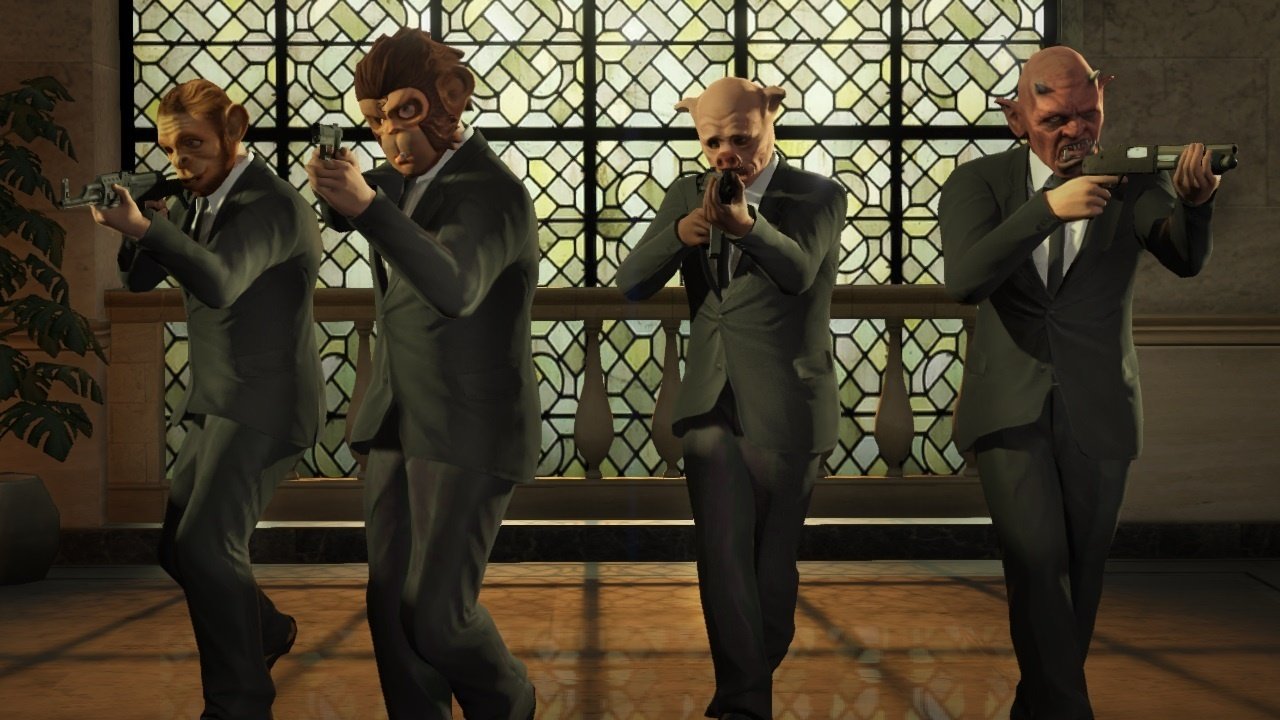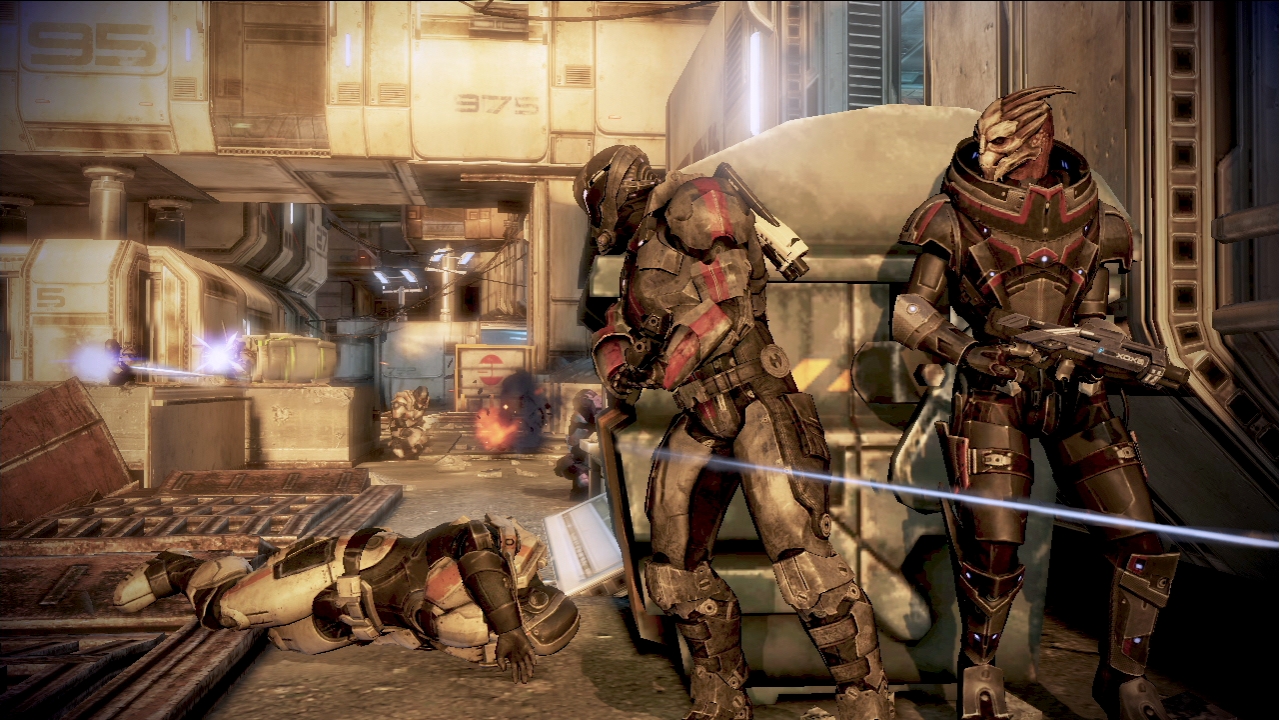Some games are meant for insanity, meant for destruction, meant for going around, tearing things up and generally causing havoc. And yet, I found myself once again telling a friend that no, it would be better not to go around killing everyone he found in Los Santos, they’d start chasing us down through hell and high water. Of course he didn’t listen, instead retorting that if I was to survive in the crew, I would have to get a lot tougher. This is GTA V Online after all, not a place for the weak and peaceful.
Survive in the crew? Doesn’t make much sense. After all, if I get wasted in game, all that will happen is a financial loss, and maybe some hurt pride. But this didn’t come to mind. Instead, I reacted instinctively. I pulled out my weapon, told him to stand down. It took some time, and a heated discussion, but eventually he conceded. For five minutes.
Then he gunned me down during a gang war.
The whole situation seems silly, but it felt very serious at the time. The reason? My friend and I were role playing (acting as) the characters that we had built around our in-game avatars. Grand Theft Auto Online is not the first place you’d think of if asked where you’d do such a thing, but it works surprisingly well.
A lot of people see role playing as a table-top experience. Dungeons and Dragons, Pathfinder or even Paranoia are examples that come to mind when thinking of the word. Apart from the Role Playing Game (RPG) genre, many people feel as though it’s a very separate construct from the core gamer experience, especially because of the importance of player-to-player interaction, but is it really?
What I’ve personally found is that any system that encourages interaction between players is perfect for role playing. To role play is to simply play a role, and react accordingly to those around you. It could be similar to your everyday personality, or an entirely different persona, created solely to fit the world that they’ll be played in.
Sometimes, you’ll use a base character someone else created in order to get started. Other times, you’ll create your own from scratch, intricately deciding every detail of their personality and appearance, before seeing how they react to the events ready to unfurl before them
That doesn’t exactly seem too different from what you experience in video games, does it? Let’s take Mass Effect as an example. You play a character, that you can customize the appearance of, who has a personality that you both shape and identify with. Through the games, you experience much of the universe through their eyes, interacting with it by choosing their words, and doing what you can to make things right. Or wrong, if you’re more of a Renegade type of person.
Admittedly, Mass Effect is classified as an RPG, and sans the wave-style multiplayer of the third installment, is single-player only, so it may seem the easy option to discuss when talking about role playing and gaming. Why don’t we shift gears entirely, and talk about the opposite end of the spectrum?
SWAT 4 is a good example. There’s not much in terms of fantasy about the game. The rules are strict; do not engage without the hostile engaging first, secure all hostiles, hostages and contraband located. There is zero tolerance for disobeying these rules, as the player encounters steep penalties for every violation. In single player, it becomes a very strategic experience, commanding your AI team mates into conflict, attempting to keep them alive and find the best way to tackle every mission.
When playing with friends, however, the game changed.
We called ourselves the Donut Team, dragged out to active duty due to low staff, shoved into the jobs no-one wanted to do in order to prove we could actually be worth anything to the precinct. Our team had a loose cannon, a good cop turned lazy and a new recruit who just wanted to do good, but had the worst of luck. Together we managed to clear most of the missions, reacting in-character to events surrounding us. It made the experience a lot more tense, and also a lot more hilarious.
Especially when someone found the “Trailers!” voice command.
Role playing ended up making what would have probably ended up a very stressful gaming experience one of the most enjoyable and entertaining I’ve ever experienced. By creating the emotional attachment, and an additional goal, we ended up performing better than in previous runs played entirely straight.
It is not something you can apply to every game, but perhaps it’s something to consider next time you play a game with a few friends. No need to plan heavily either. Both of these scenarios, and all the characters involved, happened spontaneously, a product of imagination within the games’ set confines and rules. There are many other games too, such as Space Station 13, which cater perfectly to this character and personal lore building idea.
Role playing in games is hardly a new concept, but it is one that people tend to forget about on the personal level. You can make a world within a world, a character within a character, and an experience within an experience. It may just make your time with a game all that more special.



